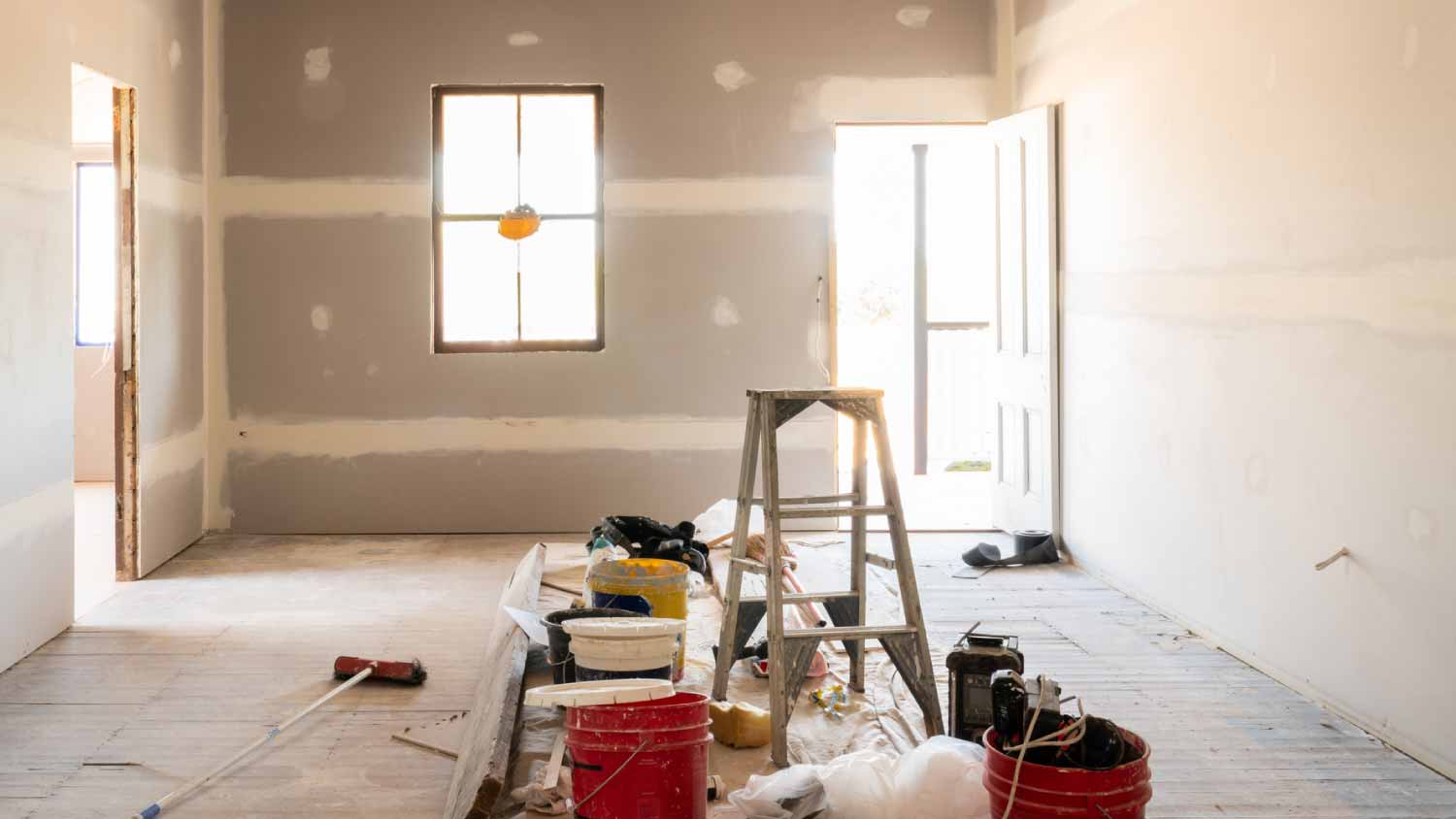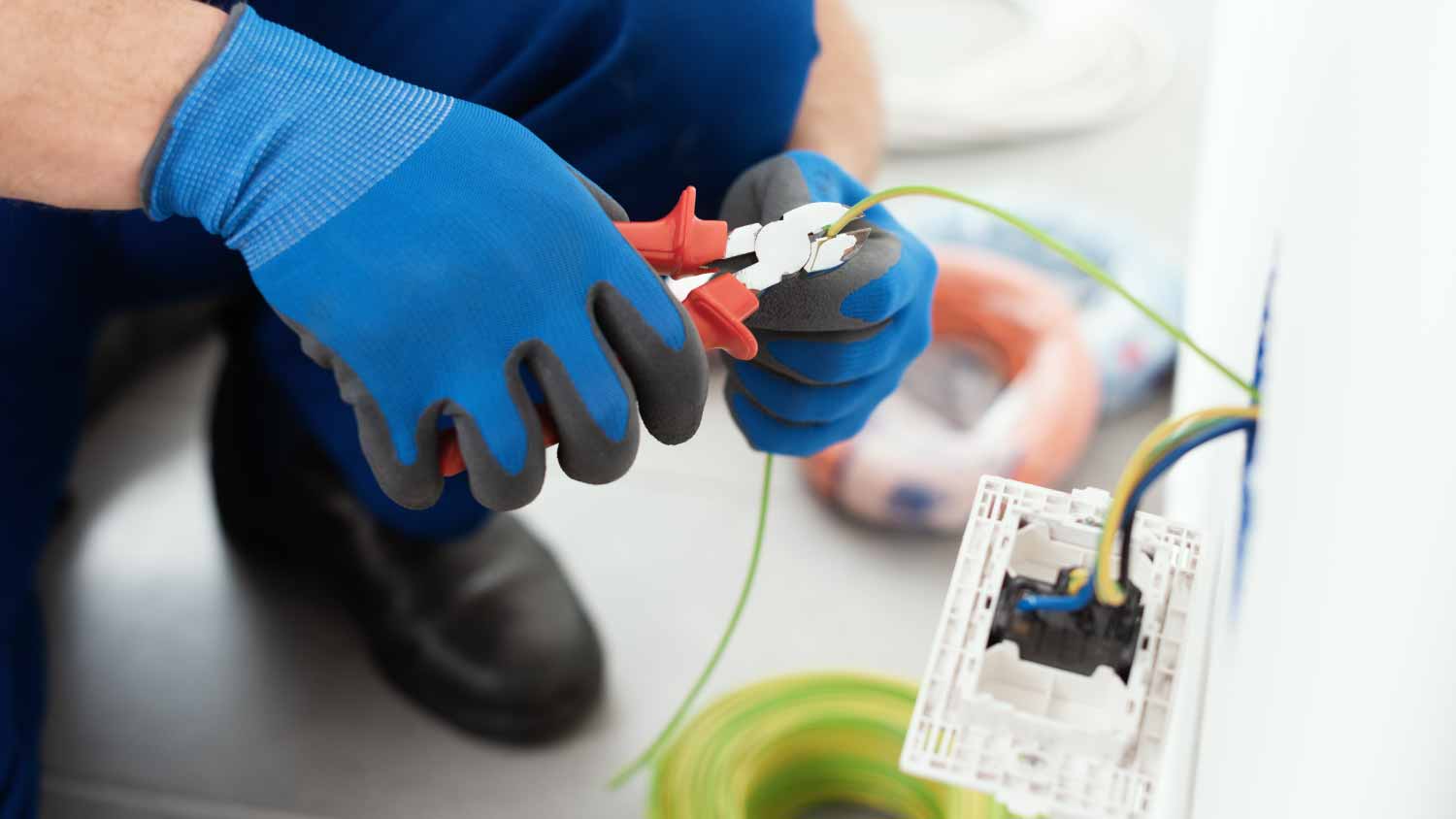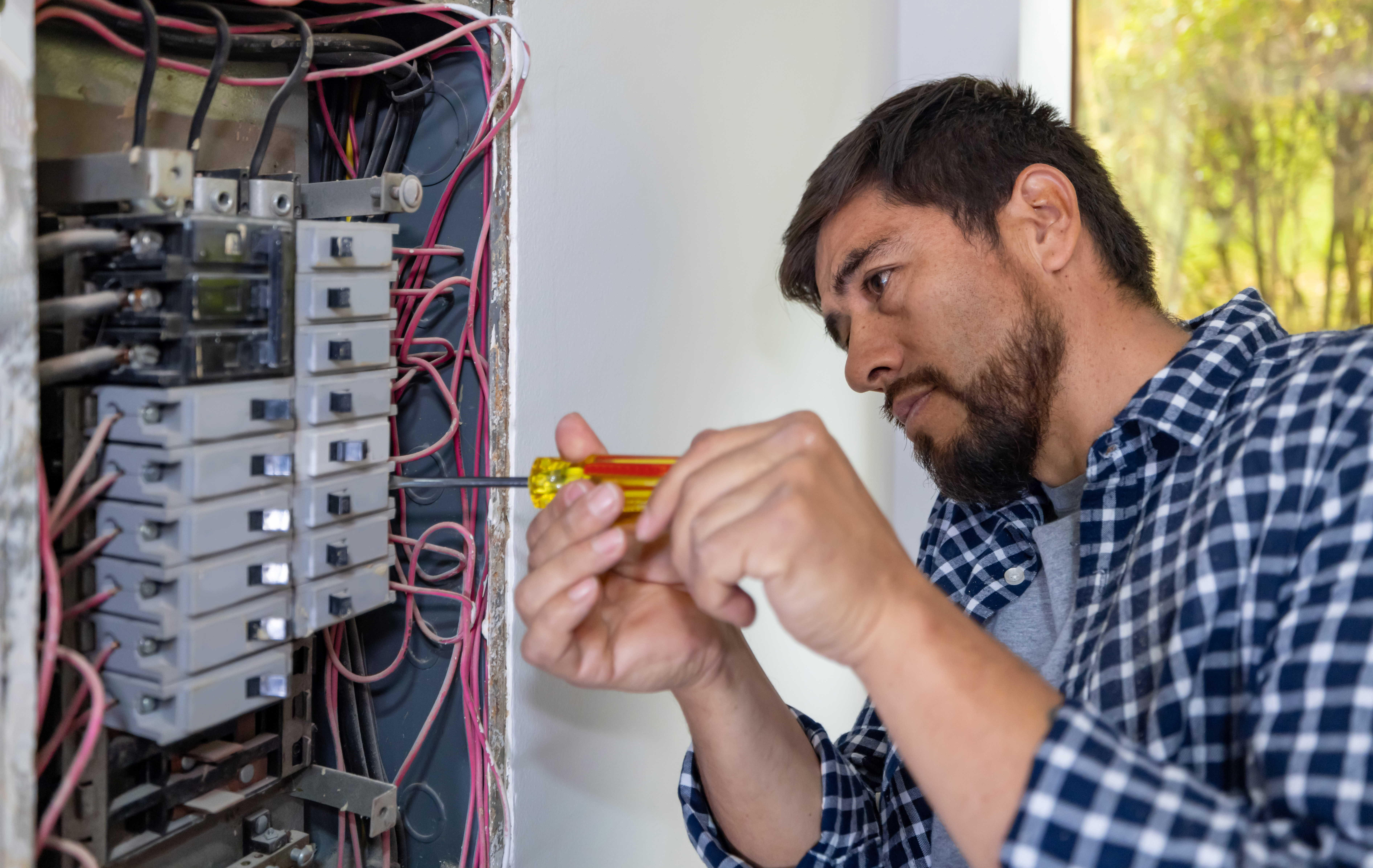
How much does it cost to add an electrical outlet in Denver? Check out what influences prices, what permits are required, and how much homeowners spend on outlets.
Here's how long it takes to rev up your home with rewiring


Most homes need rewiring every 25 years, but if you plan to install newer, bigger appliances, you’ll want to rethink your electrical system earlier to meet those increased power needs. Or, if you have an older home, you may need to update your wiring to meet all safety requirements and local codes.
Whatever the reason for the electrical overhaul, you’ll need to hire a professional electrician to do the job. But how long does it take to rewire a house? Here's a guide on what to expect.
On average, wiring a house takes between three and 10 days. The time commitment needed varies based on a home's size and age. Expect at least seven days for a home older than 40 years. Due to the danger of handling wiring and electrical components, a full home rewiring is definitely a job that a licensed electrician should complete.
Some components of a full rewiring include:
Lights
Sockets
Switches
Control panel(s)

Home rewiring is an intensive job that affects more than just wires. When you remove and replace the wires throughout your home, you’ll have to go through every room's walls, floors, and ceilings.
When rewiring to correct a dangerous situation, electricians often need to lift floorboards or carpets to access faulty or compromised wires. Certain spots may require cutting small holes into your walls to chase wires that replace the old ones. Chasing is important because it allows your electrician to run new cables through the walls to reach the right places.

It's important to reassess your home's wiring if you're adding new systems that will tax your home's current electrical capabilities. You may also notice some telltale signs that your wiring is outdated. Call an electrical contractor to discuss rewiring if you notice the following:
Flickering lights
Sparking from outlets
Shocks
Power fluctuations
Room-to-room power variations
Never ignore these signs of an electrical problem, as they’re precursors to potential hazards. Wiring degraded with age can cause sparking, which may catch on to insulation and other flammable dry materials within your home. Additionally, there is an electrocution risk when handling outlets connected to a faulty or overtaxed system. Get the job done safely by calling a local electrician to update your home's wiring.
The average cost to rewire a house ranges from $4,000 to $8,000. Costs vary depending on the size and age of the home, the type of wires and their accessibility, and the overall complexity of the project. If you have extensive electrical experience, it could cost less than $1,500 to do a straightforward DIY rewiring job or up to $12,000 to professionally rewire a large, old home, including the cost to install a new electrical service panel.
Unless you are well-versed in electrical safety and confident handling wiring work, this complex job is best left to a certified electrician near you.
If you get things wrong, fixing your mistakes will be costly, and botched wiring can lead to electrical dangers such as fires or electric shocks. DIY house rewiring could also cause bureaucratic bothers. It might not meet the latest local building codes and could invalidate insurance claims relating to electric fires or injuries.
From average costs to expert advice, get all the answers you need to get your job done.

How much does it cost to add an electrical outlet in Denver? Check out what influences prices, what permits are required, and how much homeowners spend on outlets.

Does your home’s wiring need an upgrade? Here is the average rewire house cost in Denver and the factors that impact the price.

Replacing an electrical box can fix issues around the home and upgrade your electrical system: Here’s how much this big project costs in Denver.

Ready to upgrade your front door and learn how to wire a doorbell? You may be able to handle this relatively simple DIY installation without an electrician.

Learn how to find wires in your walls so you can avoid danger the next time you need to drill holes in a wall for a DIY project.

Safety outlets cut power to connecting devices for various reasons. Learn how to reset GFCI outlets yourself and when hiring a pro is best.